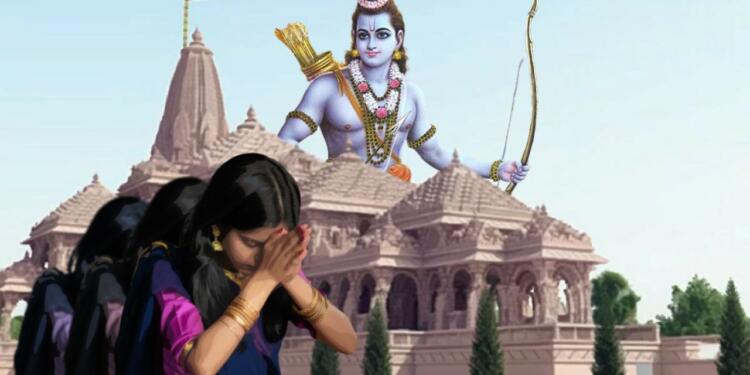The construction and imminent consecration of the Ram Mandir in Ayodhya stand as a significant triumph for the Hindu community, symbolizing a pivotal moment in India’s cultural and religious landscape. Hindus across the globe will be able to witness the momentous event as it is live streamed. The construction of this Mandir, dedicated to the infant Bhagwan Ram, marks not only a historic milestone for the Hindu community but also a testament to India’s resilience and unity. However, opposition leaders seam to choose to skip it.
Despite this celebration being one of the most auspicious days for the Hindu community, the divisive nature of Indian politics is evident, as Congress leaders have chosen to abstain from participating in the Ram Mandir consecration ceremony. This decision highlights the persistent oppositional differences within the political landscape, even on occasions of profound cultural and religious importance.
The upcoming ‘Pran-Pratishtha’ ceremony holds immense cultural and religious importance in India, capturing the attention of Hindus worldwide. The ceremony is set to be broadcasted in Times Square, New York City, underscoring its global significance. This live stream initiative aims to connect Hindus internationally with the monumental event taking place in Ayodhya.
Moreover, the ceremony will be telecast across all states in India and at various Indian embassies worldwide, making it accessible to a broad audience. Prime Minister Narendra Modi, scheduled to address the event, is poised to connect with devotees both within India and internationally, emphasizing the global resonance of this cultural milestone.
The ruling party, Bharatiya Janata Party (BJP), has strategically planned to broadcast the consecration live at the booth level across the nation. This grassroots approach involves installing large screens to facilitate the live telecast, enabling the public to actively participate in the event and witness the sacred ceremony remotely. Such initiatives aim to ensure the inclusivity of the population in celebrating this historic moment.
The Vedic rituals associated with the Pran-Pratishtha ceremony are scheduled to commence a week prior to the main event, beginning on January 16. This prelude underscores the meticulous and traditional preparations leading up to the consecration, adding a layer of spiritual significance to the upcoming ceremony.
Last month, Congress leaders, including the President and the Leader of the Opposition in the Rajya Sabha, Shri Mallikarjun Kharge, Congress Parliamentary Party Chairperson Smt. Sonia Gandhi, and the Leader of the Congress Party in the Lok Sabha Shri Adhir Ranjan Chowdhury, were invited to the Ram Mandir inauguration on January 22, 2024.
On Wednesday, the Congress announced that the party leadership would not attend the event. The party clarified its stance amid speculations and differing opinions from INDI alliance partners, stating that the consecration event has unmistakably taken on an RSS/BJP character.
The perplexing question arises: How does the consecration ceremony of the Ram Mandir, a testament to the support of millions of Hindus and funded by contributions from individuals across diverse walks of life, suddenly transmute into an RSS or BJP exclusive affair? It appears the Congress has, with characteristic finesse, chosen to mold the narrative into something far from its evident reality.
As the BJP plans to participate in the Ram Mandir inauguration with the Hindu community, many opposition parties find themselves in a dilemma regarding their participation. The CPM has already declared its decision not to attend, alleging the BJP of politicizing a religious occasion. West Bengal Chief Minister Mamata Banerjee has gone further, accusing the BJP of using the Mandir inauguration as an election gimmick. BJP MP Manoj Tiwari criticized the Congress, highlighting their historical opposition to the Ram Mandir and questioning their sincerity in participating in the event.
The construction and consecration of the Ram Mandir in Ayodhya signifies a triumph not only for the Hindu community but also for India as a whole. The global recognition and appreciation from influential nations like the USA underscore the cultural and historical importance of this event, bringing India to new heights on the international stage. Despite political differences, the nation is poised to unite in celebrating this momentous occasion, emphasizing the shared cultural heritage that transcends political divides.
























